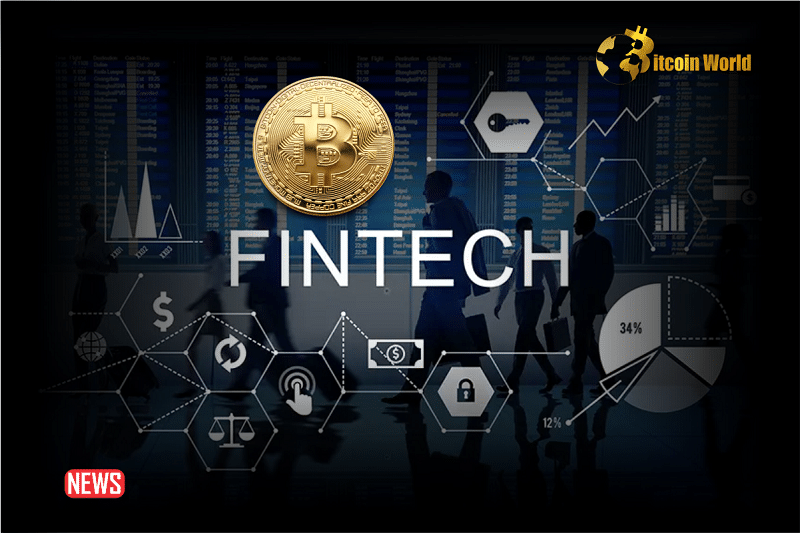- This article explores the impacts of Bitcoin on the FinTech industry.
The adoption of blockchain technology has increased prevalence. Some people think of blockchain as a network of nano-bots, but it is basically a set of codes that record the events in an unalterable format.
Fintech is an industry dependent on calculation and analysis, while blockchain is all about efficiency and effectiveness.
This brings a complete revolution of fintech as users worldwide opt for cryptocurrency transactions that optimize their payment and transaction processes.
In this article, let’s understand the role of Bitcoin in the fintech industry.
How Is Bitcoin Making Its Way To The Fintech Industry?
Digital currency is simplifying the technology that the government uses to take notice of people’s transactions.
With such great adaptability among people, central banks of many countries have released their digital currency, while some are projecting their CBDCs.
This approach is considered advantageous as per the future attributes.
But not all countries welcome Bitcoin – some governments want to deregulate Bitcoin from the financial sector and hence have levied heavy taxes.
But with great adaptability and decentralized nature, the masses are choosing the security of their currency over the taxes they have to pay.
High-end players are exploring the option of an electronic ledger as it stores their data in chronological segments. Along with that, it also saves the funds from being hacked.
See Also: Government Report Raises Alarm Over AI’s Potential Threat To Financial Stability
What Roles Does Bitcoin Play In Fintech?
Mainstream consumer acceptance still needs to be put in sight for Bitcoin. Still, the currency is an integral part of the financial system.
It is the best fit for countries that don’t have their own stable money, like El Salvador – the Bitcoin city. In such scenarios, Bitcoin came out as a proven asset.
Volatility is the nature of Bitcoin, and issues can be generated if people refrain from relying on its value for too long.
While some are trying to regulate this currency and utilize it in a controlled manner, its worldwide adoption makes traditional banks non-reliable.
Let’s look at some of the significant roles played by Bitcoin in the fintech industry.
Unleash The Market Opportunities
Bitcoin and other cryptocurrencies exist in digital format and are reliable for secured transactions worldwide.
There is no demographic limitation – users can buy anything, anytime using this global currency.
Developing countries with a stable national currency are still showing their mistrust towards Bitcoin.
The financial services are opened to all through Bitcoin, whether you own a bank account or not.
With a digital device such as a cell phone, tablet or desktop, one can conduct transactions and access the products unavailable to consumers due to financial barriers.
Efficient In Money Transfer
Getting a traditional transaction approved on time is non-functional and extra slow.
A conventional transaction needs to be approved by multiple levels of bureaucracy, and it takes a longer processing time.
When cross-border transactions occur, the time to complete a transfer is even more convoluted.
In such a riddled situation with inefficiency and long processing hours, making Bitcoin a primary payment mode seems appealing.
Bitcoin operates over blockchains and eliminates any middleman’s involvement, reducing the transaction cost.
Convenience, speed and transparency are the aspects that the market gets from cryptocurrency.
Minimized Risk Of Fraud Activities
Fintech runs the economy of the consumer and retailer market. This institution faces specific issues like theft, fraud, money laundering and many more.
These challenges are time and resource-intensive. A currency that builds over the decentralized ledger becomes easier in such scenarios as Bitcoin.
It functions on the blockchain tech, which is very secure as it cannot be manipulated, preventing fraudulent activities.
Over the past, pro-fintech solutions have overtaken the market, including alternatives to conventional payments and services for enhanced security.
Proper Utilization Of Blockchain Storage
A fintech company needs robust and upgraded IT infrastructure for their on-premise server.
The data management system displayed positive results when blockchain service administrators powered it. This inspired them to outsource the services to a blockchain partner.
Even from the cybersecurity aspect, a company’s data remains secure in a decentralized environment. The data is in full access to the owner – no one can alter it without permission.
Challenges To Consider In The Future Associated With Fintech
It’s hard to identify the accuracy of adoption in crypto assets. Still, emerging economies worldwide have been coming to the forefront of adopting Bitcoin.
As the fintech environment is changing in the global market, specific future challenges are associated with this industry. Let’s get through some of them below.
See Also: Why Is The US Openly Hostile Towards Cryptocurrencies? What Is Your Opinion?
Cryptoization
With all the associated benefits, Bitcoin and other cryptocurrencies have increased.
If considered for the long run, there are some chances of reinforced cryptoization in the global economy, similar to dollarization.
The adverse effect that the world will face is that centralized financial institutions will have a reduced ability to implement monetary policies.
Over-adoption of any currency – whether traditional or digital – affects financial stability and enhances the risk of solvency, creating an issue of consumer protection.
Fiscal Policy Threat
Bitcoin or crypto assets can facilitate tax evasion, increasing the threat of fiscal policies. The government will not be able to gain profit from printing money.
This will cause a hyped-up demand for Bitcoin in the market, creating an overflow of currency.
This kind of reaction from the market will affect the foreign exchange market, affecting the country’s economy.
When there are sudden drops in the monetary value of a national currency, inflation causes the rise of other currencies, weakening the physical money.
Energy Consumption
Developing economies and emerging markets are migrating Bitcoin mining to domestic levels.
This will increase energy consumption at their national levels, and the resource investment needs to be done.
Most of the effect will be seen in countries relying on CO2-intensive energy or governments subsidizing energy costs.
Increased crypto mining demand will lead to severe adverse effects, resulting in high-end energy consumption.
Conclusion
Bitcoin plays multiple roles in the market and is associated with the fintech industry and the cross-broader economy.
The above information highlights Bitcoin’s impact on financial technology, emphasizing its potential to revolutionize traditional economic systems.
The article explores how Bitcoin’s decentralized nature and blockchain technology contribute to increased financial security and transparency and touches upon the cryptocurrency’s role in facilitating faster and more cost-effective cross-border transactions.
Bitcoin could be valuable in diversifying investment portfolios and fostering financial inclusion.
Overall, the transformative potential of Bitcoin within the fintech landscape and its implications for the broader economic landscape will benefit upcoming generations.














